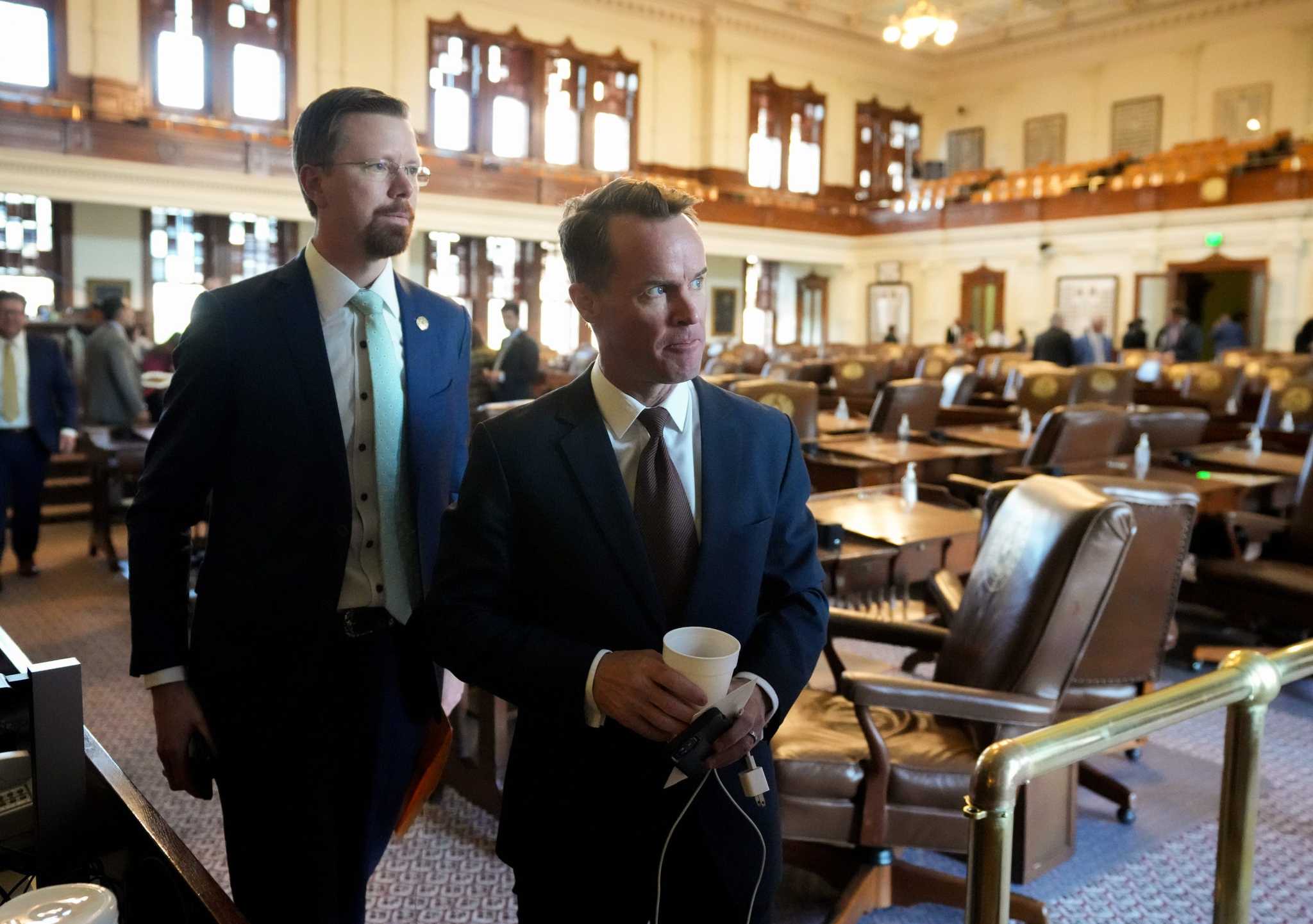politics
Ex-Texas House Speaker Reflects on Tenure and Key Decisions
The five-term lawmaker who dropped his bid for a third term as speaker says he was right to impeach Ken Paxton and not twist arms on school vouchers.
Published February 9, 2025 at 12:05pm by John C. Moritz

If state Rep. Dade Phelan has any regrets about not being able to win a third term as speaker of the Texas House, he's keeping them to himself.
In fact, the Beaumont legislator said he wouldn't have changed a single thing on the three highest-profile actions he took during the 2023 legislative session that alienated a wide swath of the GOP base and turned a majority of his fellow House Republicans against him.
Phelan, who was reelected in his Southeast Texas district in November but a month later ended his bid to keep the speaker's gavel, said awarding some of the chamber's committee chairmanships to the minority party was a decadeslong tradition that was worth preserving.
For state Rep. Dade Phelan, right, the question became not whether he could have been elected House speaker again, but whether he should have been elected speaker. He decided the answer to the second part of the question was no.
Jay Janner/American-Statesman
Also, impeaching three-term Republican Attorney General Ken Paxton on charges that he had committed fraud and obstructed justice was the right thing to do, Phelan added. Had he been serving in the Senate, where he would have been a juror in the impeachment trial, Phelan said he would have voted to convict Paxton.
In May 2023, the House overwhelmingly voted to impeach Paxton on 20 impeachment articles. The state's top attorney was later acquitted of all charges by a mostly party-line vote in the Senate.
And finally, though there were some elements in the 2023 school voucher package, sometimes called "school choice," that he personally supported, Phelan said it would have been improper of him as speaker to twist the arms of House Republicans who were against the proposal just to give into Gov. Greg Abbott's demand that a bill allowing public money to be used for private K-12 education be enacted into law.
"The votes just were not there," Phelan said about the 2023 school voucher proposal. "It wasn't some secret agenda by (the speaker's office) to not have school choice. The votes just were not there."
Phelan's comments came during a sit-down interview Thursday at UT's Lyndon B. Johnson School of Public Affairs with Evan Smith, the co-founder and former CEO of The Texas Tribune. Phelan, who at 49 is a 10-year veteran of the House, said the question he asked himself as he was being assailed by some of the ultra-conservative elements of his party for being too cozy with Democratic House members was not whether he could have been elected speaker again, but whether he should be elected speaker.
And the answer he landed on was no. But it was a nuanced no.
The calls from the right flank of the GOP for Phelan's ouster were equally as loud as the calls that any speaker must have the support of most, if not all, of the Republican House members. Such a move would have awarded the job to Rep. David Cook of Mansfield, who in a closed-door vote of the GOP Caucus in early December amassed at least 56 Republican votes. An impressive total, but well short of the 76 votes he needed to win a majority in the 150-member House.
But Phelan aligned himself with his one-time lieutenant, Rep. Dustin Burrows, R-Lubbock. And after an unusually public campaign for House speaker, Burrows prevailed on the strength of his support among House Democrats.
The victory, as it turns out, puts Burrows in much the same boat as Phelan when it comes to House Democrats. But Phelan said Burrows' boat is probably better positioned to withstand the Republican torpedoes because, between the two of them, Burrows is probably more conservative.
Not mentioned in the interview was that Lt. Gov. Dan Patrick — who as president of the Texas Senate was Phelan's longest and loudest critic — told a conservative audience at a townhall-style forum late last month that his job is to give Burrows "an opportunity to succeed." So that could mean that Patrick is not necessarily eager to transfer his antipathy for the former speaker to the present one.
There are also signs that the minefield that Phelan was unable to avoid two years ago might have been neutralized. The House voted to end the tradition of bipartisan committee chairmanships, though all the vice chairmanships will be awarded to Democrats. And the House appears poised to embrace a school voucher plan, even if it is not identical to the one Patrick's Senate passed last week.
Phelan said the chairmanship-vice chairmanship agreement will help keep some semblance of bipartisanship alive in the House.
"I think we landed in a good spot where we had that bipartisan buy-in," Phelan said. "I would have personally voted to keep Democratic chairs. I mean, I appointed Democratic chairs."

